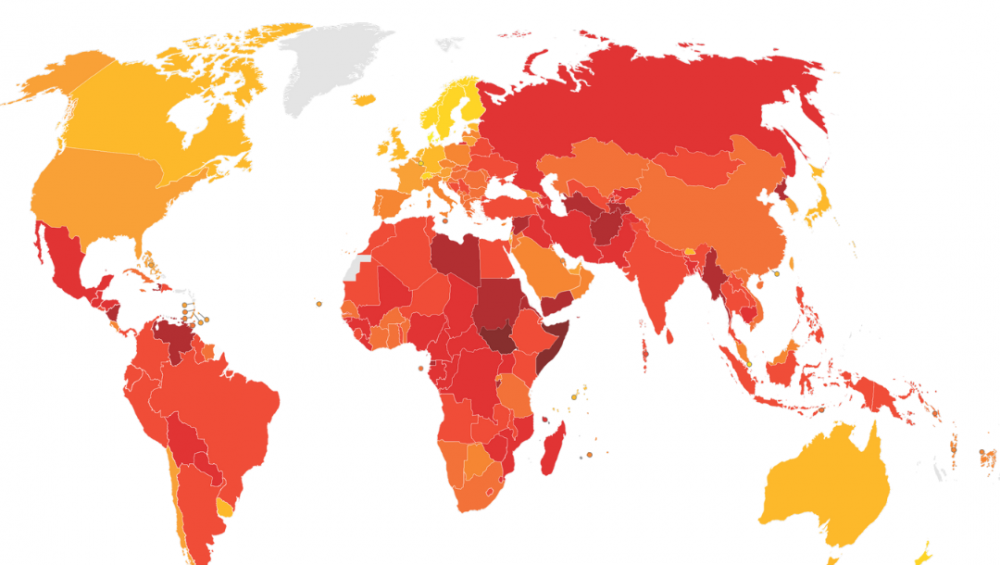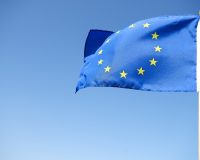Belgium’s Corruption Perception Score: A Closer Look at the worsening score
Belgium’s CPI score:
Belgium’s Corruption Perceptions Index (CPI) score has dropped four points in the latest Transparency International ranking, now standing at 69 points (22nd), down from 73 (16th) in 2023 and 77 in 2016 (15th). This decline places Belgium from 15th (2016) to 22nd worldwide, next to countries such as Japan and Urugay. It scores better than France (25th position) but finds itself well below Luxemburg (5th), The Netherlands (9th) and Germany (16th).

Marc Beyens, Executive Director of Transparency International Belgium (TIB) says:
“This new ranking confirms growing concerns among Belgians about corruption in the country. These results align with the 2024 Eurobarometer, which revealed that two-thirds of Belgians believe corruption is widespread in the country (Eurobarometer Survey).”
With a 4-point drop, Belgium’s CPI is at its lowest since the index was created. It is crucial that we understand the reasons behind this downgrading and take action to improve anticorruption policies. Many feel that policies are increasingly designed to serve the interests of powerful individuals or small groups, rather than the broader public good.
For Marc Beyens, there are three elements that are explaining why the score of Belgium is worsening:
“Firstly, the perception that public money such as subsidies or for major infrastructure projects is not being allocated in a neutral and transparent way.
Secondly, the perception that public officials can get away with corruption because there is not enough prosecution or not enough transparency about the assets they acquire while in office.
Thirdly, the perception that there are too close ties between politics and business.”
In recent years, the Belgian governments started different reform initiatives under the pressure of international anticorruption watchdogs. Yet, several recommendations formulated by the United Nations (UNCAC), the Council of Europe (GRECO) and the European Union (Rule of Law Reports) remain outstanding.
Marc Beyens:
“Gaps in our legislation remain. There exists for example no obligation for ministers and their advisors to maintain a lobby register. Also, existing laws need to be better enforced. We see for example very little prosecution of Belgian companies engaging in corruption. It is up to all of us – our governments, our enterprises, civil society and citizens – to pick up the gauntlet and bring our country back on the path towards better and fairer policies and practices.”
The situation in Belgium is not only a national trend but can be seen in the context of more regional and global trends, where the corruption perception index is declining along with a lack of confidence in public authorities.
Regional declining scores in Western Europe:

According to Transparency International Secretariat, “Western Europe’s ability to combat corruption is falling dangerously short, hindering the bloc’s ability to protect rule of law, invest in strained public services and fight the climate crisis, according to the 2024 Corruption Perceptions Index (CPI) released today by Transparency International.”
Of the 31 countries assessed in the region, only six improved their scores, while 19 declined.
Even some traditionally strong countries, such as Norway and Sweden, are in decline. This decline in the Corruption Perceptions Index should be a wake-up call, reminding us of all the need to work together for a better, more balanced world where integrity, accountability and transparency are the watchwords.
Global Highlights:
In terms of global trends, Denmark is in top ranking with 90/100 CPI score. As a reminder, the CPI is ranked in a scale from 100 (very clean) to 0 (highly corrupt).


The global average for the CPI is 43 and over half of countries score below it.
This year, Transparency International has focused on the link between the climate crisis and corruption. Corruption significantly hampers climate action, diverts funds, weakens policies, and fuels environmental destruction. Many countries that receive climate finance suffer from corruption, risking losing vital funds. Transparency International’s Climate Atlas reveals widespread corruption in climate projects worldwide. Stronger anti-corruption measures are essential to ensure effective climate action and protect the world’s most vulnerable people.
Methodology : How the CPI is calculated?
The CPI is a composite indicator used to measure the perception of corruption in the public sector in 180 countries in the world. It aggregates data from different established institutions. For instance, the Belgium 2024 CPI was calculated from the following sources:
- – Bertelsmann Foundation Sustainable Governance Index
- – Economists Intelligence Unit Country Ratings
- – Global Insights Country Risk Ratings
- – IMD World Competitiveness Yearbook
- – PRS International Country Risk Guide
- – Varieties of Democracy Project
- – World Economic Forum EOS
- – World Justice Project Rule of Law Index
The CPI is reviewed three times before publication to make it as transparent as possible.
Two internal and two external researchers independently calculate the CPI scores using data from the sources. Then, a regional advisor reports suspicious or counter-intuitive developments in the scores (if any) and, at the end, each national section reviews the results and may provide feedback or report potential problems.
To find more about the CPI methodology: The ABCs of the CPI: How the Corruption… – Transparency.org
To read this article in french: L’Indice de Perception de la Corruption (IPC) de la Belgique est publié. – Transparency International Belgium
To read this article in dutch : De corruptieperceptie-index 2024 voor België is gepubliceerd – Transparency International Belgium
What the press is saying:





